
Communicating and sharing our work
DG’s publication library includes resources, reports, white papers, policy briefs based on our data landscaping work, and more.
Written to be useful and usable, our publications are where we share learnings on barriers and incentives to data use, explore new ideas, and contribute to data policy and strategy conversations.

Trends in E-Cigarette and Heated Tobacco Product use in Urban South Africa
This research brief presents a summary of results from a survey which forms part of the Tobacco Control Data Initiative (TCDI) led by Development Gateway: An IREX Venture in partnership with the Research Unit on the Economics of Excisable Products and funded by the Bill and Melinda Gates Foundation. This study, the South African E-Cigarette Survey 2022, contributes to the pressing research and policy questions by estimating consumption patterns of electronic nicotine and non-nicotine delivery systems and heated tobacco products (e-cigarettes).
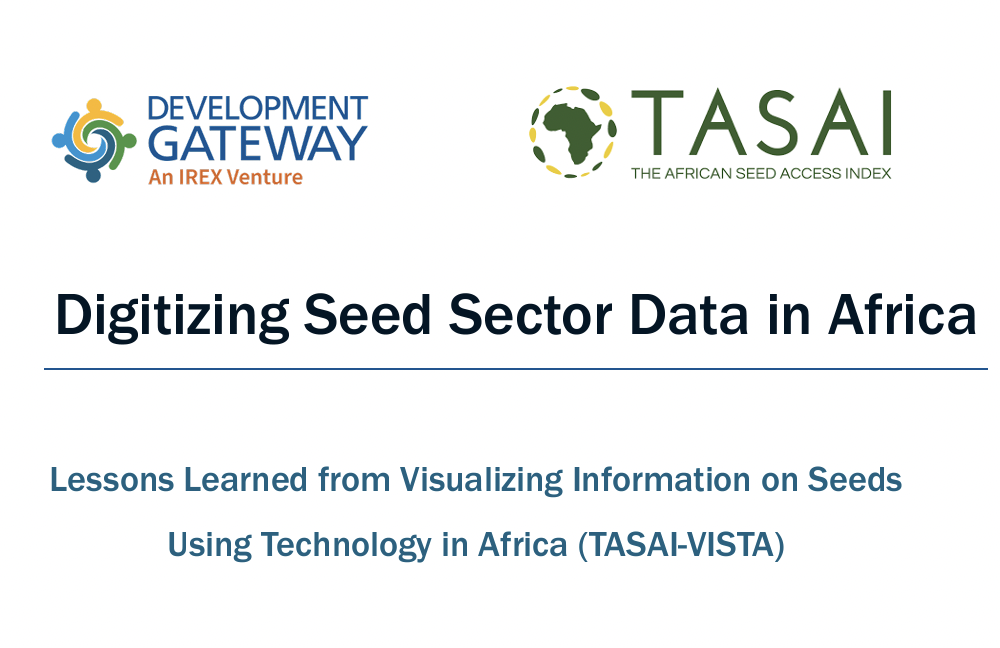
Lessons Learned from Visualizing Information on Seeds Using Technology in Africa (TASAI-VISTA)
This white paper highlights successes and challenges during the implementation of the Visualizing Information on Seeds Using Technology in Africa (TASAI-VISTA) program, as the project comes to a close. It details the data collection, analyses, and stakeholder engagement processes informing the development of a suite of digital tools designed for the TASAI team and outlines lessons learned throughout the project implementation.
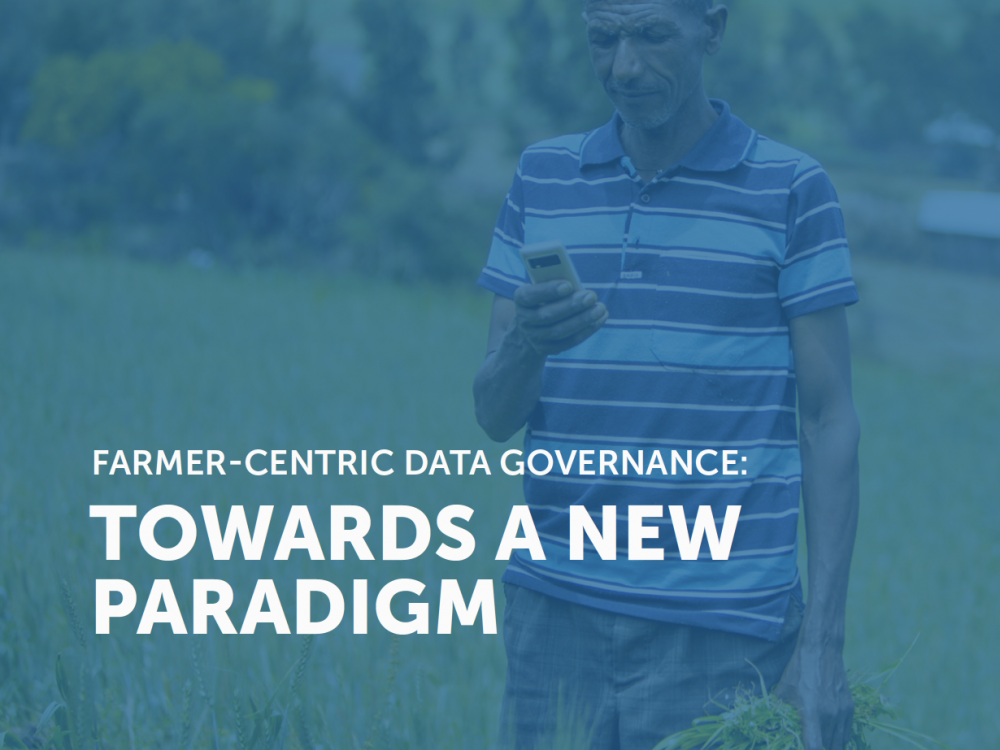
Farmer-Centric Data Governance: Towards A New Paradigm
This report, six deep dives, and nine case studies provide user-centric approaches to data governance that places farmers and their communities at the center of data gathering initiatives and aims to reduce the negative effects of centralized power. The findings are based on literature, interviews, and workshops to gather the experiences of change-makers and aims to raise awareness around the current political economy of agricultural data and its implications; identify user-centric data governance models and mechanisms, particularly in LMICs; demonstrate the purpose, value, benefits, and challenges of these models for all stakeholders, and; identify appropriate and relevant actionable principles, recommendations, and considerations related to user-centric data governance in the agriculture sector for the donor community. This project is made possible by the generous support of the American people through the United States Agency for International Development (USAID), as well as support from the Bill & Melinda Gates Foundation (BMGF). This guide was produced under DAI’s Digital Frontiers Project at the request of USAID and BMGF.
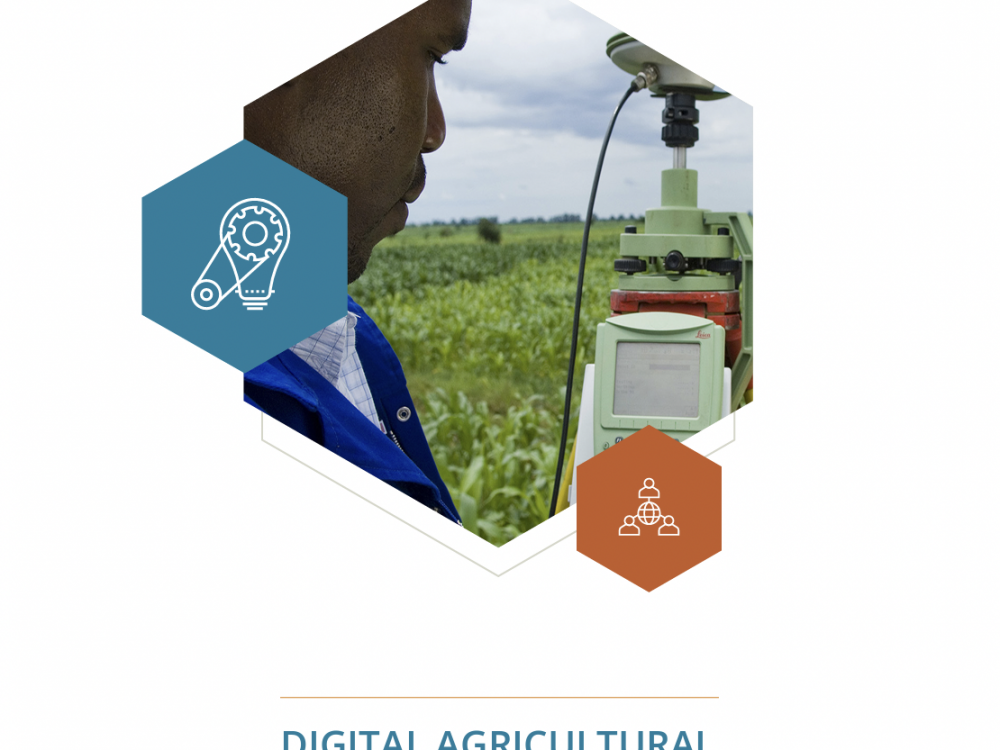
Digital Agricultural Ecosystem in Mali | Ecosystème Numérique Agricole au Mali
Development Gateway: an IREX Venture (DG) and Athena Infonomics conducted an assessment of the digital agricultural ecosystem in Mali between September 2021 and January 2022. The assessment was conducted using DG’s Custom Assessment Landscape Methodology (CALM), which uses a combination of desktop research and mixed data collection methods, including key informant interviews, surveys, and data analysis to understand the context, collect user needs, and identify the links – or missing links – between key stakeholders in a specific sector.
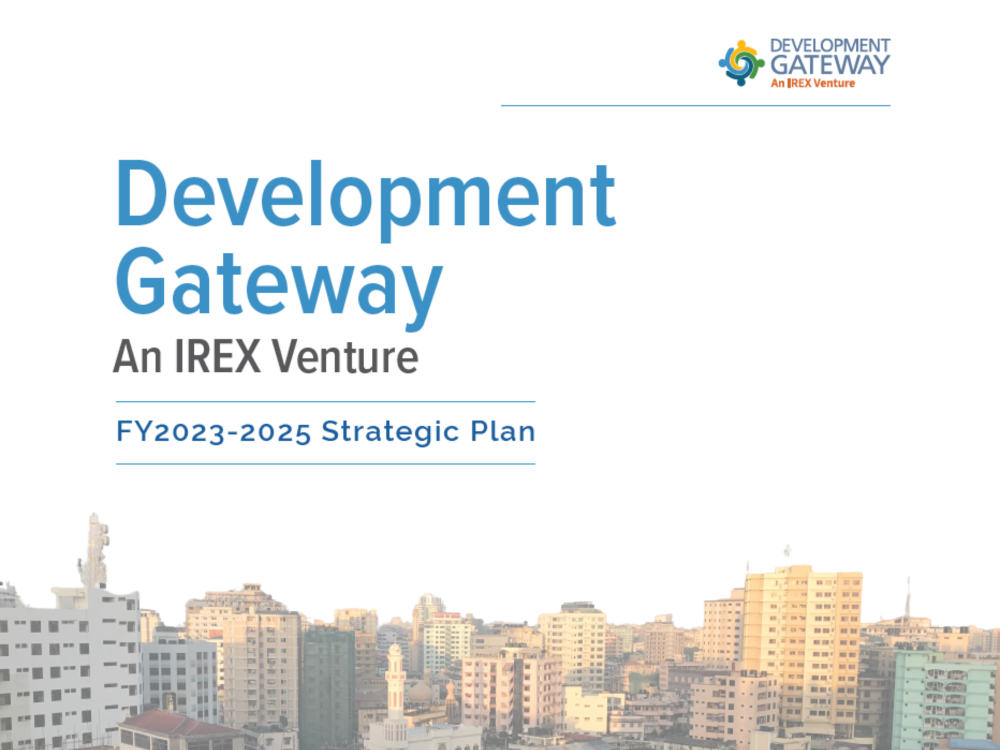
Strategic Plan FY2023 to 2025
Building on 20+ years of experience, Development Gateway announces its FY23-25 Strategic Plan. DG will expand its role as a global leader in both data and digital for development, working toward a digital development agenda that builds trust between institutions and the constituents they serve. This strategy lays the foundation for how we will achieve that vision.
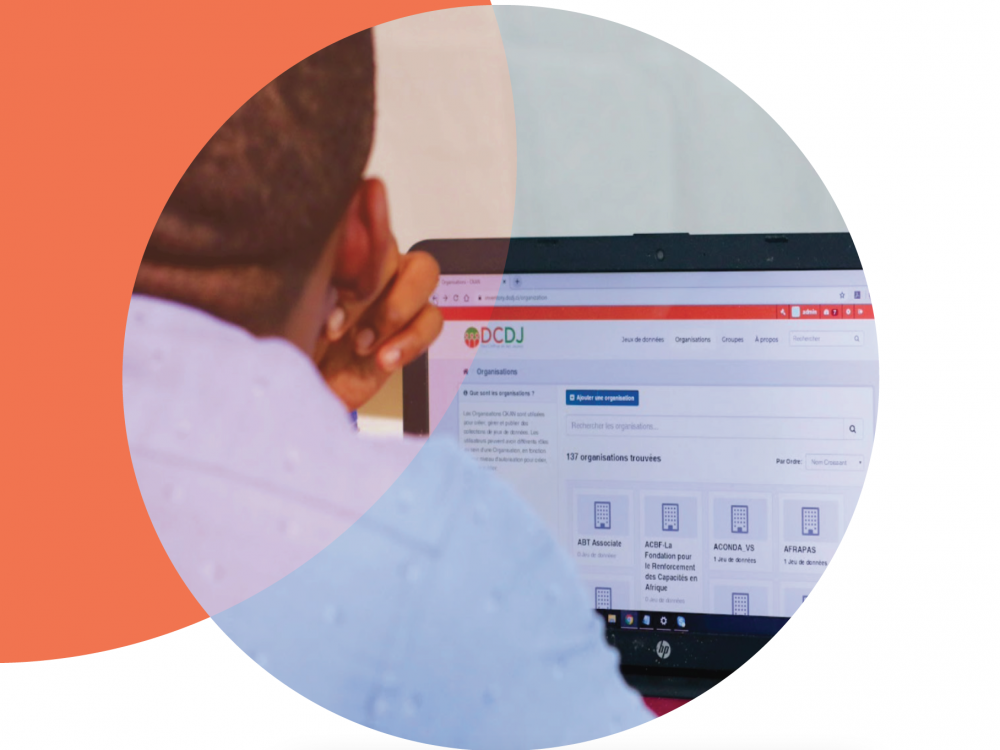
Developing a Data Inventory
For Des Chiffres et Des Jeunes (DCDJ) in Côte d’Ivoire, DG worked with partners to create a data inventory specific to the HIV/AIDS context in the country, including topics related to health, gender equality, education, and economic growth. This resource is a guide for developing your own data inventory from ideation, to launch, and beyond.

Designing Data Fellowships
This resource is for community leaders, organizations, or government agencies seeking to build Data Fellowship programs. It outlines the need for and essential considerations to develop such fellowships with specific examples and lessons learned by the Des Chiffres et Des Jeunes (DCDJ) program over three cohorts of Fellows in Côte d’Ivoire.
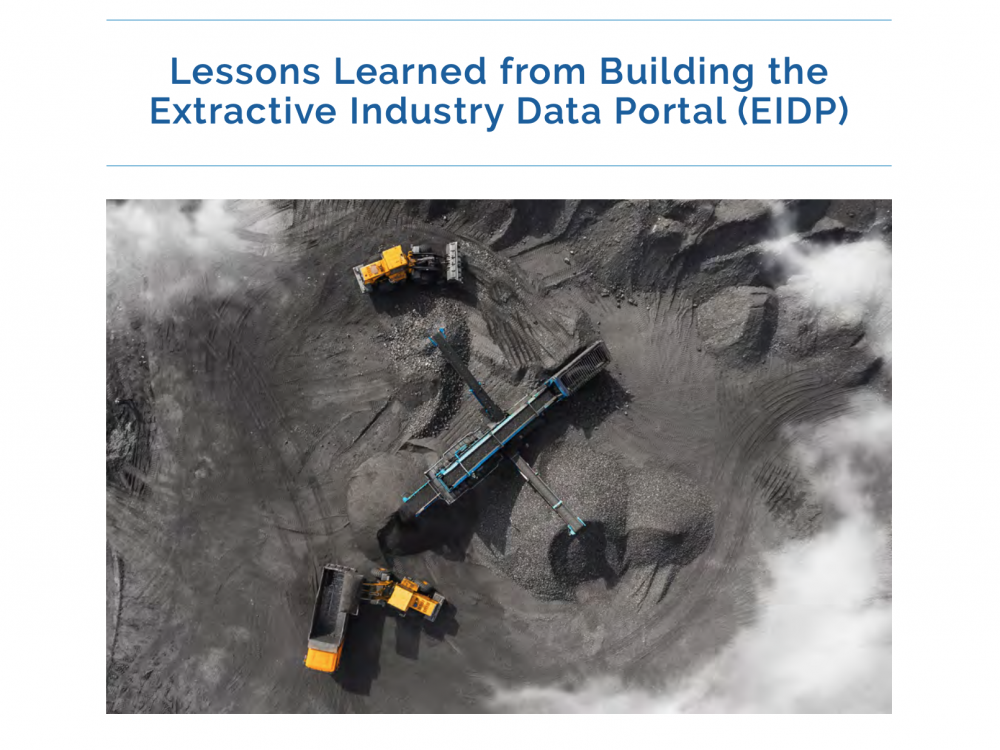
Digitizing Extractive Industries Data
This paper shares the triumphs and challenges of building Extractive Industry Data Portals (EIDPs), tools that can streamline the annual production of extractive industries (EI) sector audit reports. Findings are based on technical assessments conducted by Development Gateway in Guinea, Senegal, and Nigeria; and on DG’s development of a first-phase EIDP in Nigeria.
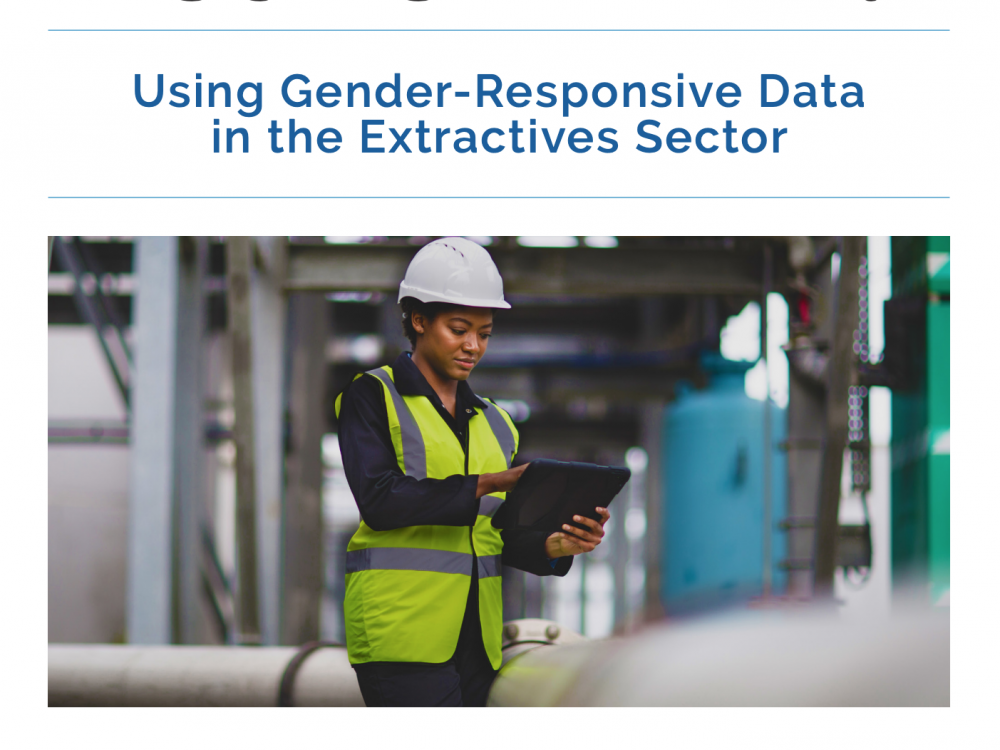
So You’ve Got Gender Data, Now What Will You Do With It?
This policy paper, in English and French, explores the role of gender data and women in the extractives industry (EI). Its goal is to delve into how gender data can be used to improve inclusion, engagement, and support for women in the extractive industries (EI). Funded by the Ford Foundation, this paper is the first in a two-part Policy Paper series that builds on Development Gateway's work in the extractive industry data management. The paper includes lessons learned, gender data findings, and recommendations through our work with Women in Mining Guinea.
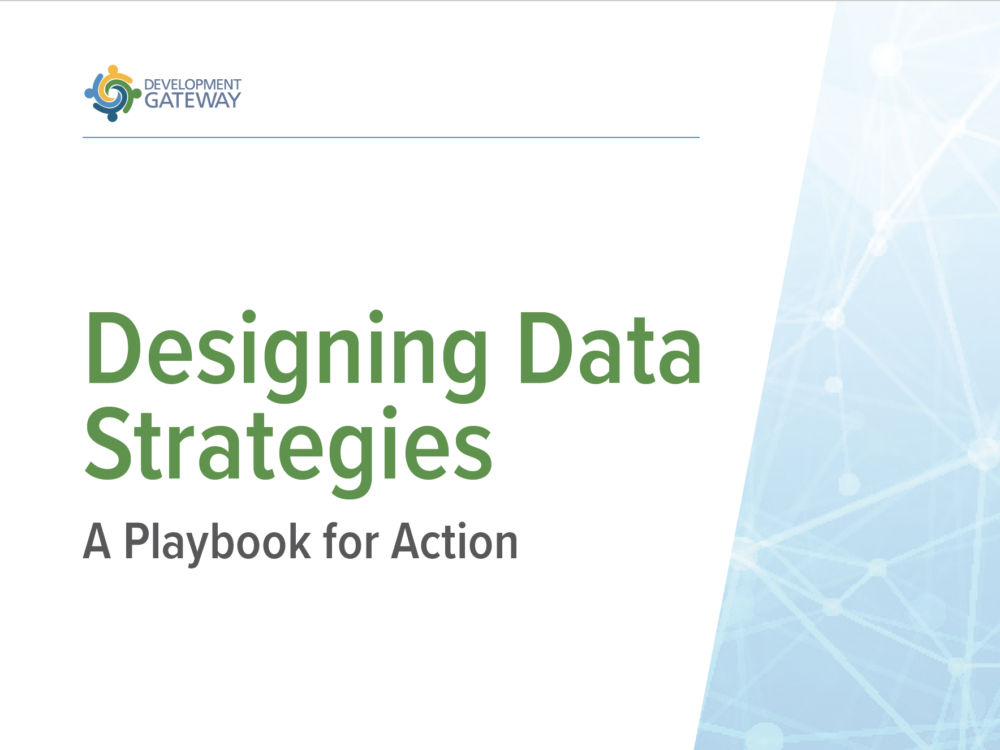
Designing Data Strategies: A Playbook for Action
For most global development and humanitarian agencies, data has historically been either a niche activity or fragmented task. But in the era of a ‘data revolution for sustainable development’ – and in a time of increasing financial scrutiny – institutions increasingly consider data and digital to be a strategic asset. This paper aims to provide a structured overview of lessons learned that may be used by those seeking to develop and implement a data strategy within international development and humanitarian organizations.